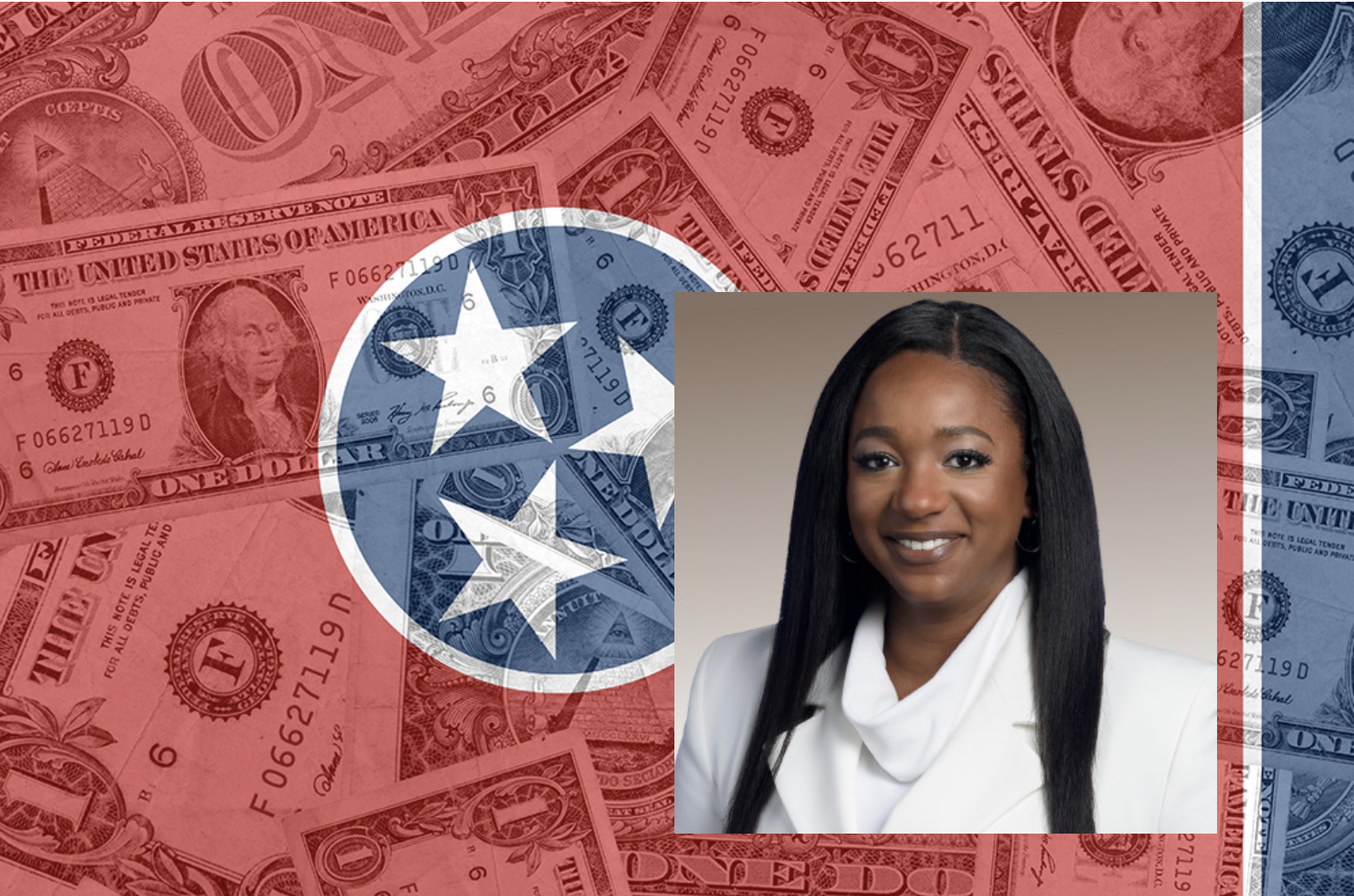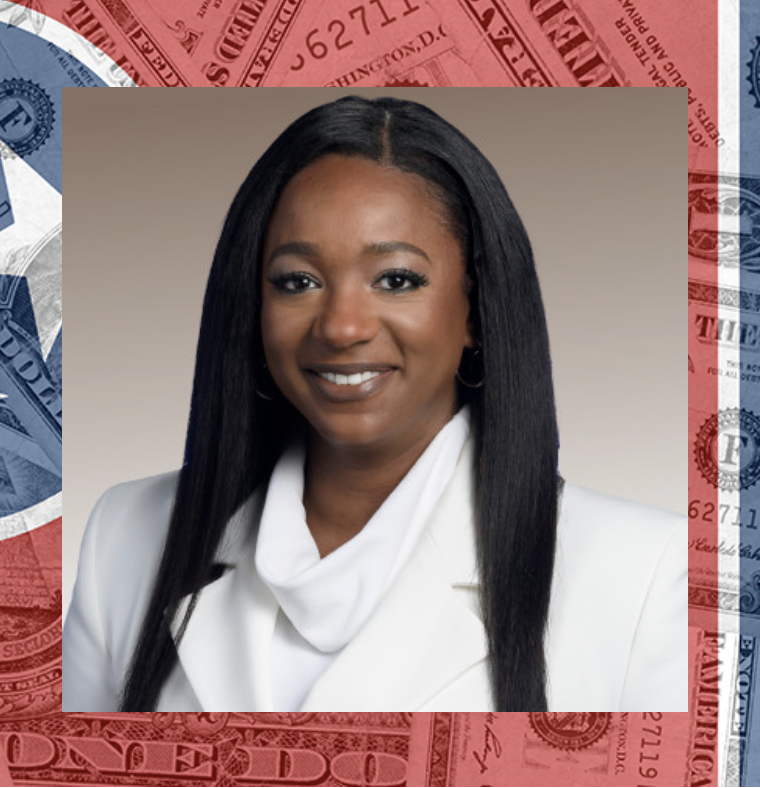
Our cover story this week looks at issues stoking the embers of class struggles in Tennessee.
School vouchers, flagging revenues, and even that brief “tax holiday” on groceries have some wondering for whom does the state’s Republican-dominated government work?
State revenues will flatten this year, according to experts, after years of increases. This is thanks, in large part, to big tax breaks the legislature approved for business owners last year.
This “business-friendly” policy framework, which cuts taxes for the business class in hopes of prosperity for everyone, found harsh critics in economists with the national Economic Policy Institute.
Another harsh critic of Tennessee’s version is Memphis state Sen. London Lamar. Here’s what she told us in a recent interview. — Toby Sells
(This interview has been edited for clarity.)
Memphis Flyer: Does Tennessee economic policy work for most folks in Tennessee?
Sen. London Lamar: Our tax policy is incentivizing businesses for keeping people poor.
I say that because when you think about since 2011 and when the Republicans got in office, the main tax reform and benefits have truly benefited the wealthy and big corporations.
When you look back since 2011 … think about it. You had a repeal of the millionaire estate tax. You have a repeal of the luxury gift tax. A repeal of income taxes on stocks and bonds. A reduction of the jet fuel tax. Corporate exemptions to the sales tax and exemptions for corporate income tax.
So, all of these major policy reforms around taxation have all been policies to benefit corporations and rich people. So the question is, where are the priorities for those citizens who are working the hardest to contribute to our economy?
If we are really about seeing … everybody being able to elevate their economic status, then you would demand that there be a set minimum wage, understanding the cost of housing inflation, taking into account people who have children and families they got to feed, the cost of housing, rent, being able to be approved for housing loans based on income. You got to think about that and setting a basic living standard where people can know they can go to work and be able to feed themselves.
Secondly, I just feel like if Tennessee wanted to see equity in the system, they would demand a minimum wage because everybody improves in my opinion, not only Black and brown communities, but everybody.
But because there’s so few regulations on what business have to pay, and the hiring practices — this is a right-to-fire state or a right-to-work state, basically — I think that our policies don’t reflect the values of trying to create an equitable workplace. The data show you that when these policies are not in place, Black people and brown people are suffering the most.
As someone who’s living in Memphis, Tennessee — that’s predominantly African American — you can look at our school system where half our kids are living below the poverty line, and the state of housing, and just the livelihood and the economic status of Black people in our city that is actually affected by it. It’s sad and it should be a crime.
I don’t think Tennessee is oblivious to its impact on which communities [it affects the most]. Again, I think they’re incentivizing businesses to keep people poor, knowing that Black and brown people are going to be at the brunt of that.
When you think of businesses in Memphis, they’re like warehouse jobs … and temp services that people have to rely on. That’s where where a large population of Black people are working at. But they’re paying them [minimum wage]. $15 an hour is still really not affordable, to be honest, if they’re getting that.
Because they’re temp workers, are they getting healthcare services? No. Getting healthcare off the marketplace is still really expensive. So, these people are going without healthcare services, making probably nothing, and they have to work 16 to 17 hour shifts just to make sure they can meet ends meet.
Then what does that lead to? Them not being able to watch their kids. And those other kids that’s getting in trouble out here in Memphis streets.
So, how we are building our economic base in Tennessee and the South is perpetrating a continuous system of poverty for Black and brown people? There’s not another study that needs to be shown that this is going to be the result. It’s just a matter of our politicians deciding to continue to reinforce this system or change their policies.
Rank-and-file taxpayers got a temporary reprieve from grocery taxes last year. But they went right back on the books while those businesses taxes were made permanent. What do you think about that?
Again, it’s about policy priorities. You know that grocery tax will help middle, working, and poor-class families tremendously. That loss of money could be made up if we kept many of these tax decisions in place that we had previously, right?
So, you can’t say that you don’t have no money. We could have had the money, but you decided to break off corporations and rich people over being able to sit here and put in a tax policy that supports the lower, working class.
This study says economic policies like there are “rooted in racism.” What do you think about that?
I do think it’s rooted in racism. As long as Black and brown people aren’t economically viable, then they don’t have really any impact politically. You can look at that in the campaign funding of Black candidates in Tennessee. We’re funded far less than Republican white folks, even white Democrats. As long as our community stays poor, then we can’t compete against rich people who have the ability, access, and resources to play in a political game in a real way.
I think this system of racism is reinforced through classism. As long as you keep people of color poor, other white folks get to stay on top. This, more than likely, correlates to who owns the most businesses that are doing well. Who owns the corporations? What’s the income makeup of policymakers and people that they’re voting to benefit? So, you can look at all those things, not just the economics side. It’s racism that is rooted in the whole system.
Anything I left out or that you’d like to add?
I want to challenge business owners and stakeholders and people of influence in the system to ask themselves, “Do you want to keep the status quo? Or, do you want to start putting us on the path for better?”
